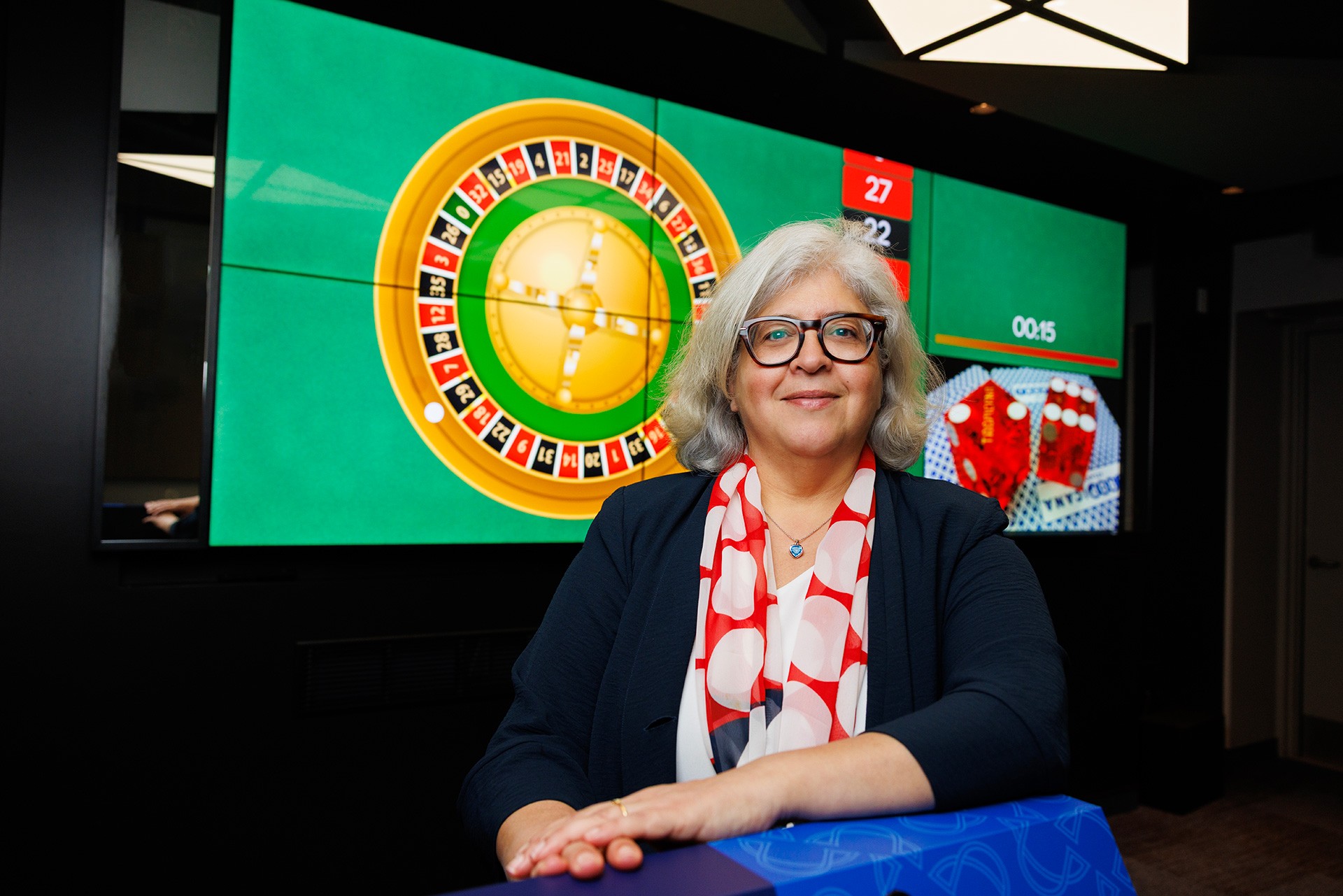The COVID-19 pandemic shutdown changed just about every aspect of daily life, including gambling habits. With no casinos, bingo halls, sports betting or even lottery tickets, an unprecedented number of Quebecers turned to online gambling, many for the first time.
A new study led by Concordia researchers reveals that between 15 and 20 per cent of Quebecers gambled online in 2021, with more than five per cent trying it for the first time. About 15 per cent of Quebecers reported gambling online both before and during the pandemic. Only 1.4 per cent reported stopping gambling altogether.
The findings are based on a population survey of over 4,500 residents of the province. Ninety-six individuals were selected as representative of the population for in-depth semi-structured interviews about their gambling experiences during the first year of the lockdown. The study was published in Harm Reduction Journal.
"Between 2018 and 2021, online gambling almost tripled in scope in Quebec," says Sylvia Kairouz, a professor in the Department of Sociology and Anthropology and the study's lead author.
"For some, it was a compensatory strategy for being stuck at home and not being able to participate in other activities. But most of the gamblers were steady, who had gambled before and during the pandemic. Some increased their gambling, reporting that they diversified their activities or spent more money."
She notes that some respondents who quit gambling altogether said they would likely not have been able to stop if venues like casinos had remained open.
"This suggests that accessibility and the availability of gambling is an important factor for some people."
 Sylvia Kairouz: "Between 2018 and 2021, online gambling almost tripled in scope in Quebec"
Sylvia Kairouz: "Between 2018 and 2021, online gambling almost tripled in scope in Quebec"Loneliness and boredom are key drivers
Two-thirds of the new wave of online gamblers were men, and often young adults: 20 per cent were aged between 18 and 34, and 40 per cent were between 35 and 54. Men between their late 20s and early 40s were most likely to start or increase their online gambling habits during the pandemic.
Respondents cited several different reasons for their surge in gambling activity. The most common was the lack of alternatives, as land-based venues were shuttered. Boredom, isolation and relaxation or stress relief were also important. The lure of easy money additionally attracted some gamblers, especially those who had reported loss of income due to the lockdown.
Kairouz points out that off-line gambling in general had been declining before the pandemic, while online gambling has been modestly but steadily on the rise. That changed with the lockdown, especially when sports betting was legalized in August 2021.
Surprisingly, the researchers also found that day trading exploded during the pandemic's first year. The practice of quickly buying and selling stock for small but rapid profits was found to share some traits with gambling - namely risk-taking, thinking on one's feet and potential for fast financial rewards.
"The day traders we interviewed were having fun with it," Kairouz says. "They were building these spreadsheets and gathering information and taking it very seriously. They felt they were trying to really understand the system and have control over it. But like gambling, it doesn't usually work."
Little oversight, more advertising
Kairouz notes that these habit changes presented some potentially significant challenges to public policy and health advocates. Online gambling is readily available at all hours, across all platforms, where it is widely advertised. It is also minimally regulated. Between 2020-21, Espacejeux.com, Loto-Québec's online gambling platform, reported a 171 per cent jump in revenue, along with a 72 per cent rise in people requesting self-exclusion.
"In terms of prevention, the biggest challenge is a lack of regulation; the biggest risk is the advertisement this ecosystem is built on," Kairouz says. "We banned advertising for tobacco and cannabis, so why do we allow the gambling industry to have this freedom?"
This study was funded by Fonds de recherche du Québec - Société et culture.
Read the cited paper: "A portrait of online gambling: a look at a transformation amid a pandemic"






